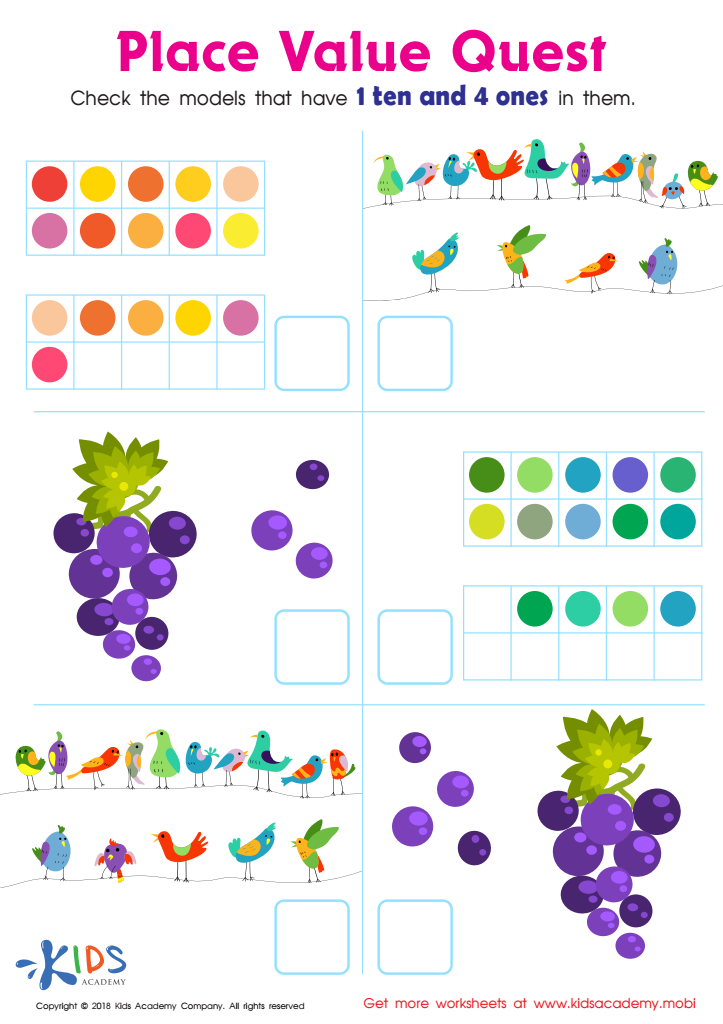Developing math literacy Worksheets for Kids
1 filtered results
-
From - To


Place Value Quest Worksheet
Question/Answer
What are some effective activities to train students’ Developing math literacy skill when teaching them about Numbers?
Effective activities for developing math literacy in the topic of Numbers include using manipulatives (like blocks or beads) for hands-on learning, practicing number sequencing and patterns, number games (like bingo or number matching), storytelling or problem-solving with real-life contexts, and integrating technology apps designed for math learning to make abstract concepts more concrete and interactive.
How does the mastery of the Developing math literacy skill affect a student's performance at an early age?
Mastery of Developing Math Literacy at an early age significantly enhances a student's performance by fostering critical thinking, problem-solving abilities, and the fundamental understanding of mathematical concepts. This foundational knowledge supports academic success across subjects, boosts confidence in math-related activities, and lays the groundwork for advanced mathematical learning, ultimately contributing to better educational outcomes and interest in STEM fields.
How to test a Grade 1 student’s Developing math literacy skills?
To test a Grade 1 student's developing math literacy skills, use age-appropriate assessments that include counting objects, recognizing numbers, performing basic addition and subtraction within 20, solving simple word problems, identifying shapes, and understanding concepts like more than/less than. Incorporate both written tests and practical, hands-on activities to evaluate understanding and application of mathematical concepts in real-world contexts.
 Assign to the classroom
Assign to the classroom



%20(1).jpg)






